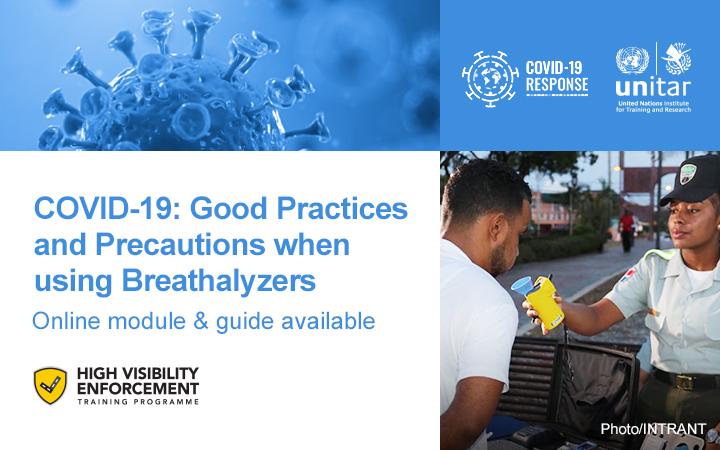
COVID-19 Preparedness and Response - Good Practices and Precautions when using Breathalyzers
Special Traffic Options Program for Driving While Impaired (STOP DWI) of the State of New York, Erie County, Intoximeters Inc., Diageo
This online course developed with the support of Intoximeters Inc, Diageo and the Special Traffic Options Program for Driving While Impaired (STOP DWI) of the State of New York, Erie County aims to provide recommendations for proper use and maintenance of breath alcohol testing instruments considering the threat of the COVID-19, which is reported to be a viral disease that is often passed though airborne droplets of fluid from an infected person to another. How to use, clean and disinfect breath alcohol testing instruments becomes crucial.
Everyone around the world is experiencing unprecedented challenges from the coronavirus (COVID-19) pandemic with profound health and socio-economic impacts. As of April 2020, over 2 million cases of the virus have been recorded worldwide, and the death toll so far is at least 200,000.
As countries work to contain and the spread of COVID-19, every sector is faced with the need to renew its toolbox. Every country will have to explore and expand in creative ways all possibilities to respond – with the prime objective of protecting the heath and well-being of every citizen, leaving no one behind.
At the end of the course, participants will be able to:
- Recognize measures to minimize the possibility that a subject can contract a disease in the process of providing a breath sample to a breath alcohol testing instrument
- Apply good practices and precautions to reduce the likelihood that the operator or other handler of the instrument is exposed to an infectious disease from the subject directly, the mouthpiece, or from the instrument
The course is comprised of 5 sections:
- Steps to reduce transmission during a breath alcohol test
- The difference between cleaning and disinfecting
- The risk of breath alcohol instrument contamination
- User’s role
- COVID-19: Good practices and precautions
The course includes an interactive lesson accompanied by learning materials and readings, as well as a detailed guide available for download.
Direct beneficiaries of the online course will be law enforcement officers responsible for conducting Field Sobriety Tests (FSTs) and public officials responsible for programmes aimed at reducing drinking and driving.

